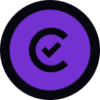







Each organization establishes the internal policies that make the most sense for its area of activity or business. These documents serve as the basis for guide behavior and decisions within the organization.
In general, the most common compliance program policies are:
Well-defined policies ensure that all employees understand the company's rules and values, reduce legal risks, strengthen the ethical culture e increase institutional credibility. They are also required by legislation such as the Anti-Corruption Law (12.846/2013) and by LGPDThey are essential in audits and certifications.
They are principles and strategic guidelines that guide the creation and implementation of the integrity program of a company. The guidelines define the tone of leadershipthe organization's ethical priorities and the role of each area in complying with internal and external standards.
The integrity policy aims to formalize the the company's ethical and legal commitmentsIt also prevents fraud, corruption, harassment and other misconduct. It acts as a guide for the conduct of employees and partners, as well as demonstrating transparency and commitment to compliance.
To draw up an effective policy, you can follow the step by step below:
Don't forget that clickCompliance's platform helps automate the management of these policies once they have been created.
A compliance document must contain:
Don't forget that it's not enough just to create the policyThe distribution and monitoring of the established guidelines are equally important!
Using a specialized platform, such as clickCompliance, increases adherence and reduces the risk of non-compliance. Some ways to have this guarantee are:
It is recommended to review the policies annually or whenever there are relevant changes in legislation, organizational structure or the regulatory environment. A clickCompliance facilitates version control by notifying those responsible and storing the revision history.
O code of conduct is a broader document, which defines the company's values, principles and ethical standards. The corporate policies are more specific documents, which detail procedures and rules on topics such as corruption, harassment, information security, among others. Both are complementary and must be managed with traceability.
It's a digital solution for centralize, organize, distribute and monitor corporate documentsThese include internal policies, codes of conduct, rules and regulations. The system ensures that employees have access to the correct version and that the company has traceability over reading and acceptance.
You can manage any type of document that is part of your company's compliance or corporate governance program, such as:
Yes. The system has a control panel with real-time indicators on the status of reading, acceptance and pending issues by employee, area or unit. This guarantees full traceability and legal certainty.
The documents are sent automatically to defined audienceswith the possibility of integration with corporate e-mail or access via the web portal. Employees can access it at any time, including by cell phone.
Yesm. You can configure electronic acceptance requiredwith or without a digital signature, depending on the company's policy. The system registers acceptance with date, time and user ID.
Yes. The system triggers automatic alerts and reminders by e-mail to employees who have not yet accepted the documents on time. Case the employee hasn't signed even with the reminders, you can send an alert to the direct manager as well.
Yes. clickCompliance allows create personalized segmentationsensuring that each group of employees receives only the documents relevant to their profile, based on integration with the management system your organization uses (Office 365 or G-suite).
Yes. The module has automatic version control, allowing you to know which version is in force, when it was updated and who accepted each one. This prevents the use of outdated documents and improves information governance.
Yes. The solution was developed based on principles of General Data Protection Lawguaranteeing transparency, access control, registered consent and protection of personal information of employees.
The platform includes cutting-edge information security technologyincluding:
